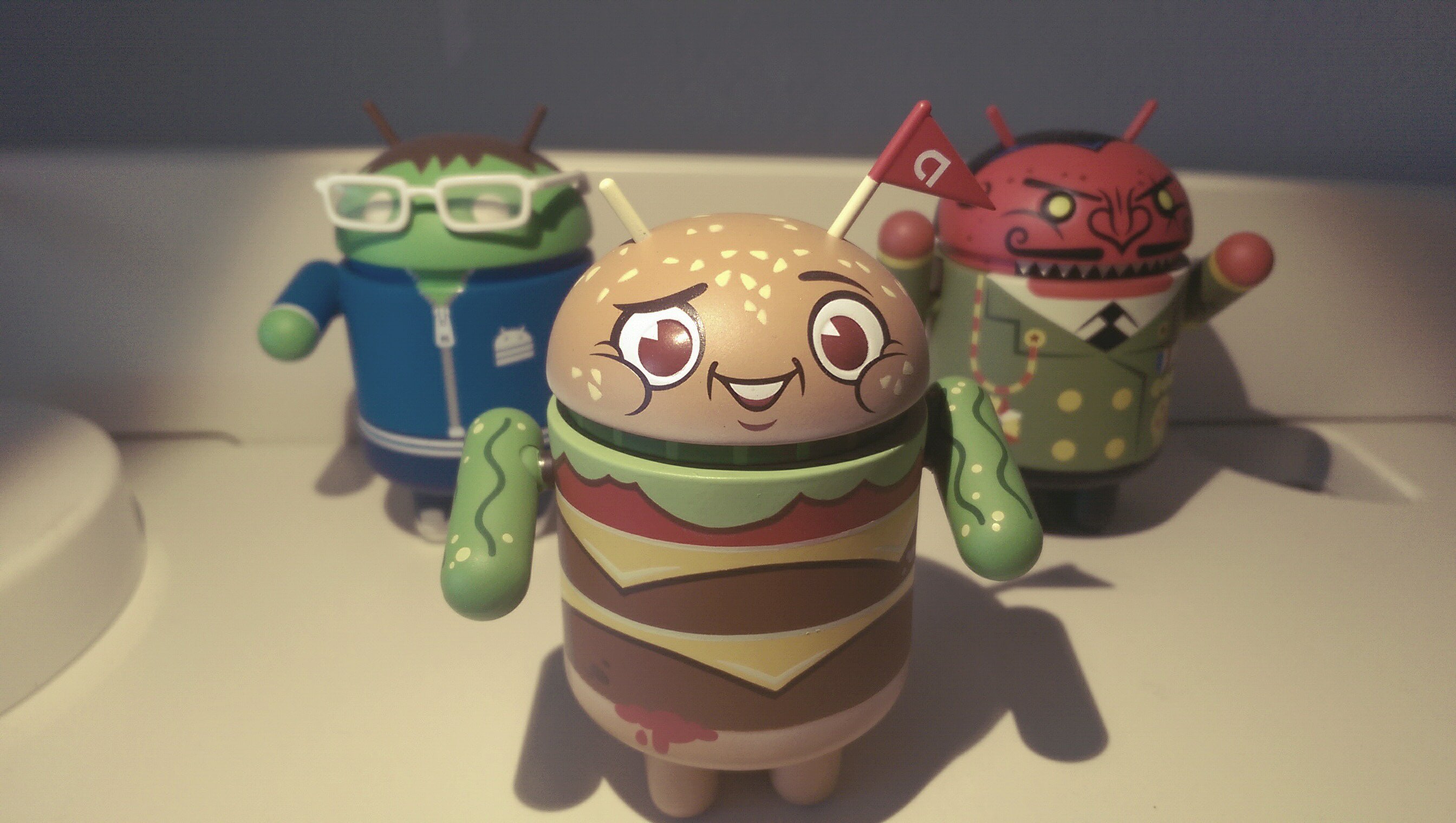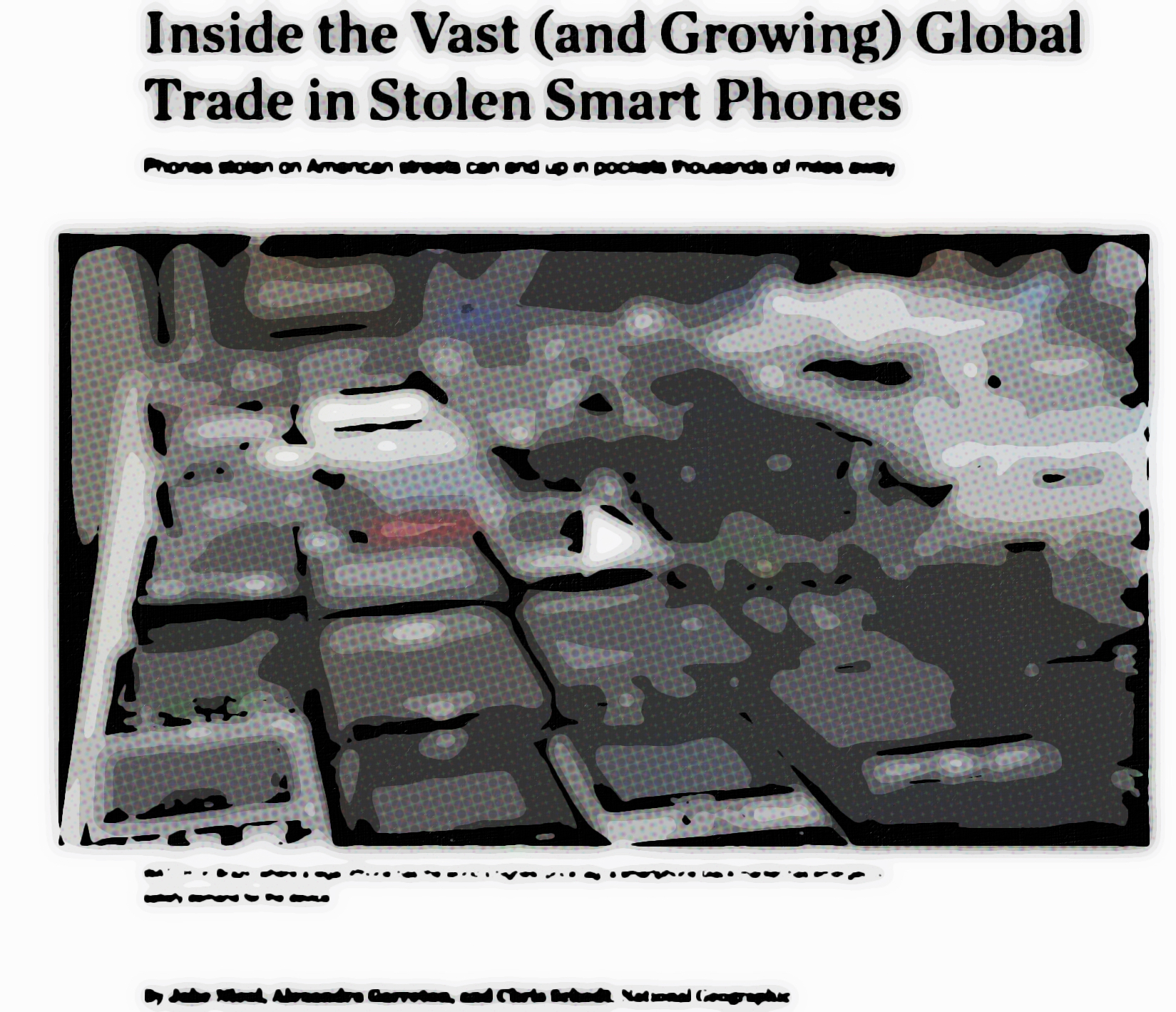You don’t pick a Ted Lee pic. It choose you. His photostream is a marvelous mix of street art and studio portraits, and the view counts are unusually high. He shot self-titled “Embarcadero” on April […]


You don’t pick a Ted Lee pic. It choose you. His photostream is a marvelous mix of street art and studio portraits, and the view counts are unusually high. He shot self-titled “Embarcadero” on April […]

My daughter’s cat takes possession of a tapestry; I snapped the pic using Nexus 6, which is my main smartphone again. I sold iPhone 6 Plus, and, unbelievably, the buyer shattered the screen not long later. […]

The photostream of Thomas Leth-Olsen is a study in objects—and perspective about them. Our Day Taker is example, from the vantage point of color rather than direction. Simplicity creates drama. He shot self-titled “Twist” on Aug. […]

Three weeks ago, Google filed its expected rebuttal to the European Competition Commission’s statement of objections released in April 2015. The EC alleges unfair competition in online shopping services.
My missive focuses less on the “what it is” and more on the “what does it mean”. Google blogged about the filing, but I haven’t yet seen the document. I choose not to source the blog, which is more about public relations. You can read the post by Kent Walker, general counsel, for yourself or the recap somewhere else. A Google blog recapping the filing is secondary to the legal document.

Photojournalist Giannis Angelakis has a wicked eye. The images he captures on the streets of Greece evoke emotion, and you immediately want to know what is the backstory for each. I could fill a week’s […]

The first weekend of iPhone 6s and 6s Plus preorders are behind us, but Apple already looks ahead. This morning, the company presumably sought to quell last week’s Wall Street jitters in statements to CNBC, Financial Times, and MarketWatch, among other news services popular with investors. This is perception-management at Apple’s finest, and it is metaphor for success selling smartphones and why most competitors flounder by comparison.
I didn’t receive the statement and so cannot attest to its veracity. But presuming esteemed financial news services accurately report, misdirection isn’t much better than this. Apple doesn’t give an exact figure, instead stating: “We are on pace to beat last year’s 10 million unit first-weekend record when the new iPhones go on sale Sept. 25”. How circumspect is that? Ten million the first weekend two weeks later?

Ha! Now there is something surely unexpected. Meet and greet what I consider to be the single-most cause of obesity back home in Maine—the state treat, which shouldn’t be confused with the official dessert: blueberry […]

After a long hiatus, serialization of my ebook Responsible Reporting: Field Guide for Bloggers, Journalists, and Other Online News Gatherers resumes. This chapter, and the last, are the most important for doing what you’re supposed to report responsibly. Major theme last time: The importance of asking “Who benefits?” about everything. Today’s installment turns around concept “conflict of interest” and points the finger back at you. The traditional view about conflict of interest is misguided, and it is fundamentally outdated for online news reporting—or any other.
As Chapter VI explains, I see objects of conflict as mattering much more than traditional concept of conflict of interest. Stated differently: Human relationships are more influential than financial gain. Worse, there is a fairly recent trend where bloggers or journalists post ethics statements, which I view as worse than useless. So-called transparency justifies continued conflicts rather than separation from them.

Our Sunday selection is from Moyan Brenn. You must spend time in his photostream. He has such an eye for composition. His view counts are high for a reason. But, sigh, shooters like this make […]

As Apple’s iPhone 6s and 6s Plus preorder weekend progresses, I reflect on the week’s announcements. Increasingly, I see the company as the middle-aged boys club; men of a certain age designing products for rich, white, middle-age males. Of course, execs want women and people of other ages and classes buying pretty things, too. I refer to a mindset that seems to be core to Apple’s post-Steve Jobs design ethic.
“Products without purpose” I call new MacBook, Apple Watch, and iPad Pro. Where once Steve Jobs filled niches and created new categories, CEO Tim Cook and company create new Apple ware for which there is little to no need whatsoever.

The nature shots from the photostream of Stan Lupo are so fantastic, I wrongly wondered if he reposts images from National Geographic. Choosing one is a nearly impossible task. Being his work is so exceptional, today’s selection is a bit unfair. But the insect is one of my all-time favorites, and our Day Taker emphasizes the importance of shooting with what you got, not what you want. Vitals: f/2.4, ISO 50, 1/151 sec, 4.1mm.
Stan used iPhone 5 to capture this Polyphemus moth, hence the self-title, on July 11, 2015. “A first for me”, he says, “and I only had my iPhone with me. The best camera is the one you have with you”. True that.

My respect for National Geographic news reporting—yes, news—grows with each day’s online reading. September 9 story “Inside the Vast (and Growing) Global Trade in Stolen Smart Phones” is goddamn good example. Stories like this require […]